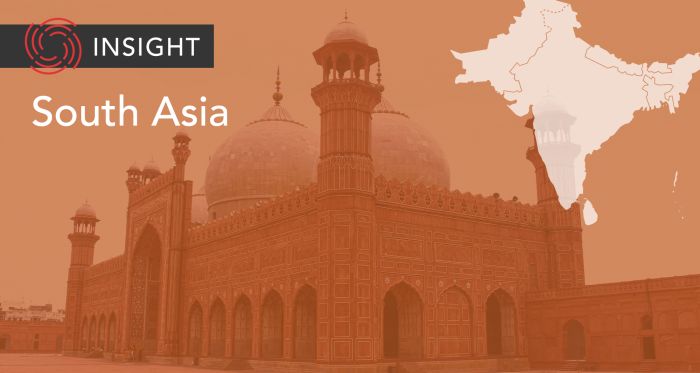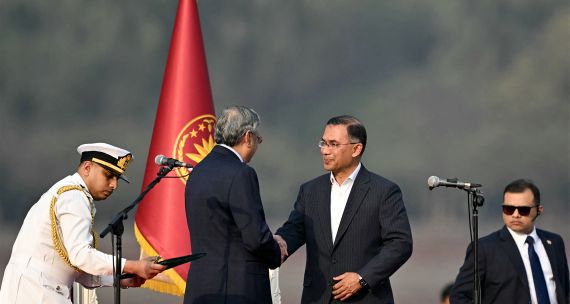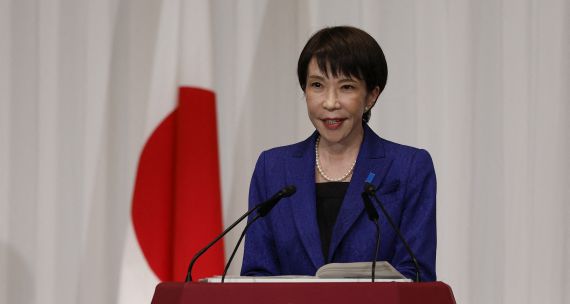The Takeaway
Pakistan’s government, led by Prime Minister Shehbaz Sharif, is grappling with a two-headed crisis: the country is mired in economic misery, and the government faces continuing political instability due to the arrest (and subsequent release) of populist opposition leader Imran Khan. While the military, for now, seemingly enables the current government to contain the opposition, the mass public unrest and violence that overtook the country in May have prompted questions about Pakistan's potentially bleak democratic and economic future and stirred discussions about the possibility of military rule.
In Brief
In May, Pakistan saw one of the largest political dramas in its history play out, starting with former Pakistani prime minister Imran Khan’s arrest on May 9. His arrest was followed by an unprecedented level of violence and destruction of military property, allegedly perpetrated by supporters of Khan’s Pakistan Tehreek-e-Insaf (PTI) party. Soon after, a military-led crackdown saw hundreds jailed. At least two Pakistani journalists went missing during the clampdown and, according to police reports, at least eight people died, prompting international organizations and countries like Canada and the U.S. to raise human rights concerns. Then, in a surprising turn of events, more than two dozen key PTI leaders resigned from their positions, with some quitting the party and politics altogether, reportedly due to the May 9 violence and vandalism. The Pakistani government is now considering banning Khan’s PTI, which could lead to a larger public upheaval.
Implications
Over the last year, Khan, a cricketer-turned-politician, has focused on building his voter base — including by making antagonizing statements about the ruling government and the military — and pushing for early elections.
Khan’s May 9 arrest by paramilitary forces turned heads due to the military’s involvement. The arrest was linked to just one of the many cases the former prime minister has been embroiled in since his ouster from the Pakistani parliament in April 2022. Although Khan’s arrest was later ruled illegal by the country’s highest court and he was released on bail, the incident led to a wave of violence, particularly directed towards the powerful (and seemingly untouchable) military force that has long sat at the apex of power in Pakistan.
Pakistan’s military is a key part of the country’s political structure and is often seen as a “kingmaker” for potential leaders. The civilian-military nexus is well-established and, as noted by one former PTI leader who resigned in the aftermath of the May 9 incidents, “Pakistan exists because [the] Pakistan Army exists, and we must devise our policies keeping this point of view at the front.” PTI leader Imran Khan’s ascent to power also had the blessing of the Pakistani army; however, over time, Khan’s relations with the army soured.
Khan’s feud with current army chief Asim Munir started in June 2019. Khan, who was prime minister at the time, unceremoniously removed Munir as the director-general of Inter-Services Intelligence, Pakistan’s premier intelligence agency. In November 2022, Sharif tapped Munir to become independent Pakistan’s 17th army chief. While the current political debacle can be seen as fallout between Khan and Munir, the fact remains that both Khan and Munir exercise different kinds of power. Khan is one of the most charismatic leaders in the country: he appeals to youth and women voters in particular and enjoys support from certain factions within the army and the judiciary. Munir, for his part, is the chief of the most powerful entity in Pakistan.
On May 15, at a special Corps Commanders Conference, the army announced that it would try the May 9 “protestors [and] abettors” under military law, possibly a result of the Khan-Munir fallout. Pakistan is the only South Asian country to try civilians in a military court. The country now faces an existential threat, and the political system is collapsing, leading many observers to speculate that military rule may not be far behind, particularly as the government ignores Khan’s calls for talks. Meanwhile, Khan has been left with a party that is significantly depleted in terms of power and impact, although thousands rally behind him. Khan’s momentum and popularity suggest there may be greater public distrust in the military and the current government than ever before.
What’s Next:
- IMF bailout stalled
To make matters worse, there are concerns about Pakistan defaulting on its sovereign debt. The International Monetary Fund’s (IMF) US$6.5-billion bailout is yet to kick in as IMF officials continue negotiations with Pakistan. One expert told Bloomberg that another currency devaluation is possible for the country, troubling Pakistani finance minister Ishaq Dar, who labelled devaluation “the mother of all evils.” Pakistan did, however, post a trade surplus in April, its first in 2.5 years.
- Canadian ministers seek intervention by PM Trudeau
In a letter to Canadian Prime Minister Justin Trudeau, 16 Canadian members of parliament noted “grave concerns” about the political and human rights situation in Pakistan and urged Trudeau to call out the Pakistani government for its crackdown. Canada and Pakistan share significant people-to-people ties, and bilateral economic relations — including a C$1.3-billion trade relationship — have the potential to strengthen if there is political stability.
• Produced by CAST’s South Asia team: Dr. Sreyoshi Dey (Program Manager); Prerana Das (Analyst); Suyesha Dutta (Analyst); and Silvia Rozario (Analyst).




